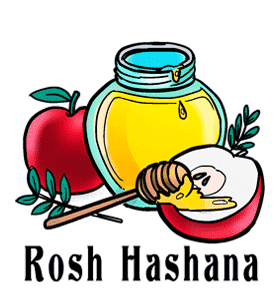Rosh Hashana
Rosh Hashana Quick Facts - US
| AKA Name | Yom Ha-Zikkaron, Jewish New Year |
|---|---|
| HashtagsCompiled on | #RoshHashanah |
| 2024 Date | October 2, 2024 |
| 2025 Date | September 22, 2025 |
2024 Holidays & Dates - US
| US & Common Holidays | ||
| Misc. & Int'l. Observancesℹ | ||
| Christian Holidays | ||
| Jewish Holidays |
|
|
›
|
|
